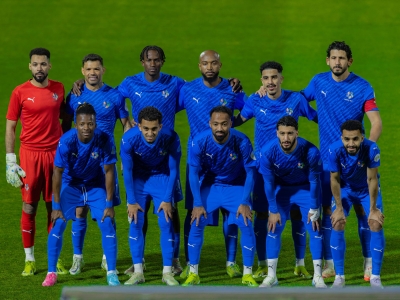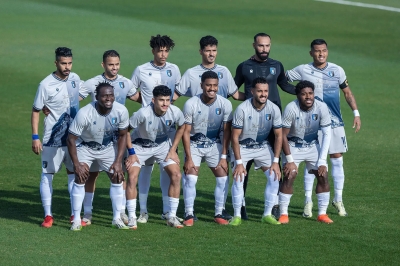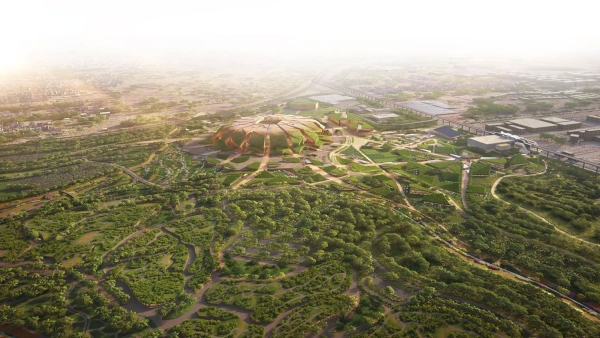
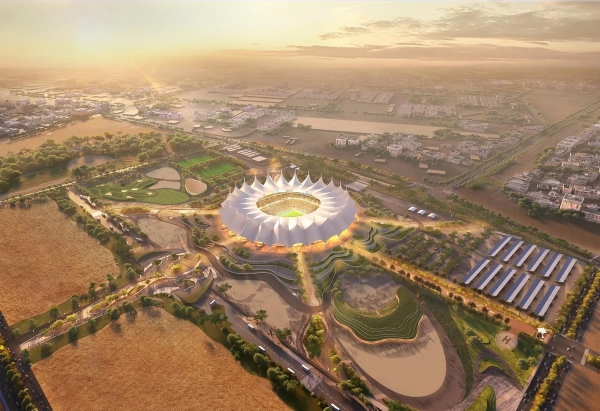
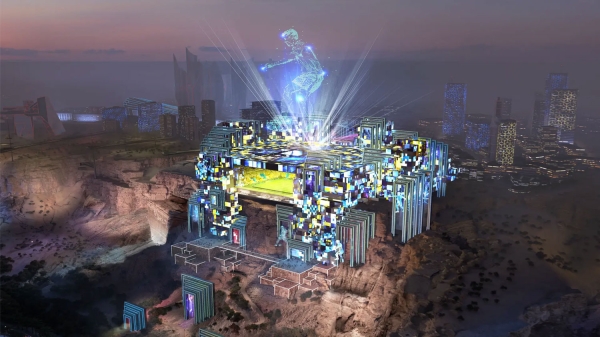
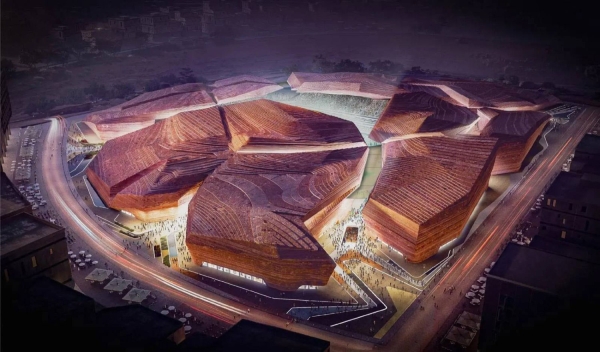
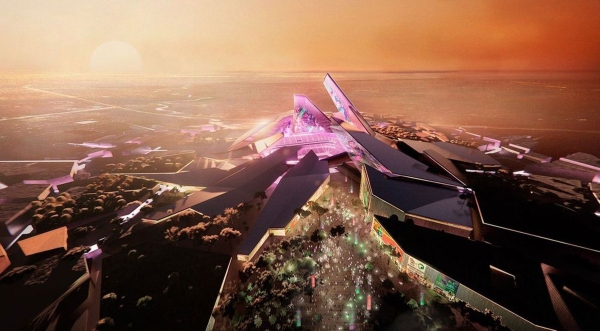
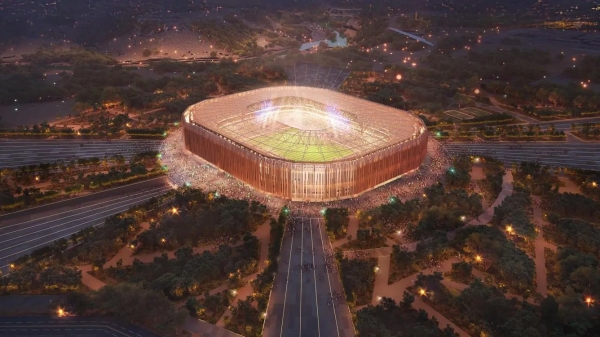
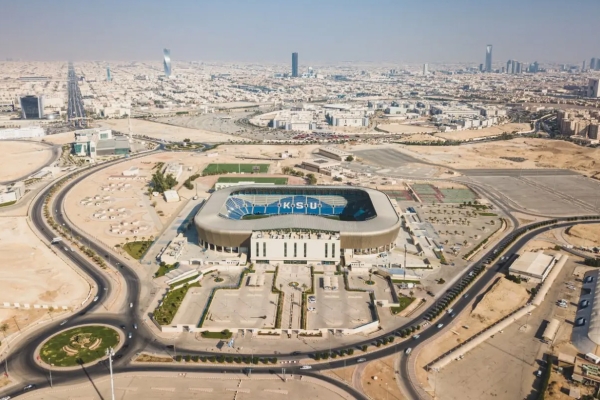
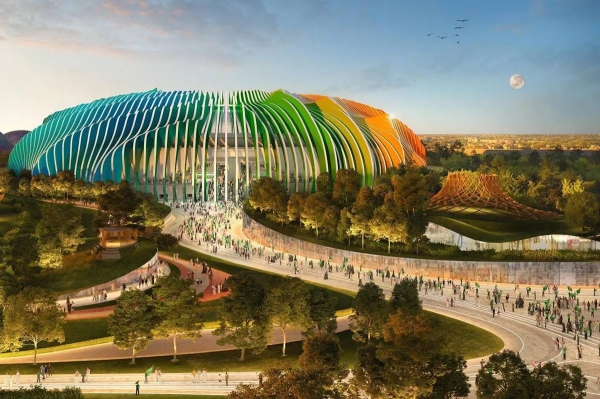
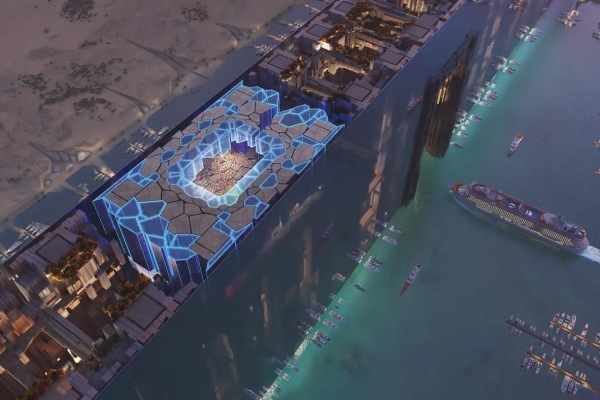
The bid submitted by the Kingdom of Saudi Arabia to host the 2034 World Cup includes fifteen stadiums distributed across five Saudi cities, of which eleven are entirely new. Riyadh City will be home to eight stadiums dedicated to this event, while Jeddah will have four stadiums. Additionally, al-Khobar, Abha, and NEOM will be home to one stadium per each.
King Salman International Stadium
Located north of Riyadh, King Salman International Stadium will be one of the largest sports stadiums globally upon its completion in 2029, with a capacity of up to 92,000 seats. It will become the new home ground for the Saudi national team, hosting major sporting events and activities. King Salman Stadium has been chosen to host both the opening and final matches of the 2034 World Cup, in addition to other tournament rounds.
King Fahd Sports City Stadium
This stadium is one of the prominent ones in the region, characterized by its unique roof design inspired by the traditional Arabian tent. It is located near major city destinations like the Sports Boulevard project, providing easy access to green spaces. The planned renovation of the stadium will significantly increase its capacity and enable its use for various purposes, from football matches to musical concerts. It will host the group stage of thirty-two, the round of sixteen, the quarter-finals, and the semi-finals, with a capacity of seventy thousand seats.
Prince Mohammed Bin Salman Stadium
This new stadium in Qiddiya offers a distinctive view of one of the peaks of Tuwayq Mountain. Materials used in its construction, including colored glass and shiny metals, add unique aesthetic touches with a futuristic character. It also has a capacity of 46,000 seats.
It will host the group stage, the round of thirty-two, the round of sixteen, and the third-place match.
New Murabba Stadium
Located in the capital Riyadh, New Murabba Stadium is one of the stadiums hosting the 2034 World Cup with a capacity exceeding 45,000 seats. It features a design that combines local character inspired by the Acacia tree, a main natural landmark in Wadi Hanifa, with innovation and modern standards.
ROSHN Stadium
ROSHN Group, a company affiliated with the Public Investment Fund (PIF), announced the construction of an iconic stadium with a capacity of up to 45,000 spectators in an area exceeding 450,000 m² southwest of Riyadh City. It will host the group stage and the round of thirty-two.
South Riyadh Stadium
The new stadium is inspired by the principles of Salmani architecture, which blends authenticity, heritage, and modernity. It is set to become the main stadium for one of the football clubs and host various sports and entertainment events. It has a capacity of 47,000 seats, and will host the group stage and the round of thirty-two of the tournament.
King Saud University Stadium
Located next to the 'U Walk' complex, this stadium is a significant mixed-use project affiliated with King Saud University. The stadium currently hosts Saudi Pro League matches and other major sporting events. Its capacity will be increased to host several tournament matches. With a capacity of 46,000 seats, it will host the group stage and the round of thirty-two of the tournament.
Prince Faisal Bin Fahd Sports City Stadium
This new stadium will be built within a master plan that includes several parks and gardens in the surrounding area. It will use locally manufactured materials, with a vast array of solar panels installed on its roof, and surrounded by multi-use green spaces. Located in a vibrant area that serves as a distinctive destination for the local community, it will host the group stage and the round of thirty-two. It has a capacity of 45,000 seats.
King Abdullah Sports City Stadium
It was built in 2014 and nicknamed 'The Shining Jewel.' The planned renovation of this stadium aims to meet FIFA's specific requirements while preserving its distinctive design elements. It will host the group stage, the round of thirty-two, the round of sixteen, and the quarter-finals. It has a capacity of 58,000 seats.
Qiddiya Coast Stadium
This new stadium will be constructed in the heart of the Qiddiya Coast project on the shores of the Red Sea, alongside many other sports facilities and hotels. Its design is inspired by the undulating appearance of the famous Mexican waves, featuring rich and vibrant color gradients. It will host the group stage, the round of thirty-two, and the round of sixteen, with a capacity of 46,000 seats.
King Abdullah Economic City Stadium
It is set to be built in King Abdullah Economic City on the Red Sea coast. This stadium features a multi-purpose design with aesthetic touches inspired by local coral reefs. It will host the group stage and the round of thirty-two of the tournament, with a capacity of 45,000 seats.
Jeddah Central Stadium
The stadium's design emulates the distinctive architectural styles of the historic Jeddah, al-Balad, incorporating technological advancements and innovative building designs. It will be constructed in the Jeddah Sports Parks area, surrounded by zones designated for fans. It will host the group stage and the round of thirty-two, with a capacity of 45,000 seats.
Aramco Stadium
Situated on the shores of the Arabian Gulf north of al-Khobar, this new
King Khalid University Stadium
King Khalid University Stadium is located southeast of Abha City. It is scheduled for expansion to increase its capacity to more than 45,000 spectators to host several matches of the 2034 World Cup. The renovation focuses on updating the infrastructure while considering the stadium's historical context. It will host the group stage, the round of thirty-two, and the round of sixteen.
NEOM Stadium
NEOM Stadium is distinguished by its elevation of more than 350 m above ground level. Its roof extends as part of the city's skyline, offering an exceptional and unprecedented football match experience, and embodying one of the world's most prominent landmarks. After the tournament, it will become the main stadium for one of the professional football clubs and a center for sports activities and lifestyle programs in the city. It will host the group stage, the round of thirty-two, and the quarter-finals, with a capacity of 46,000 seats.
Related quizzes
Related articles

